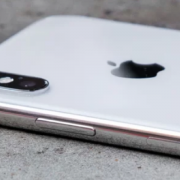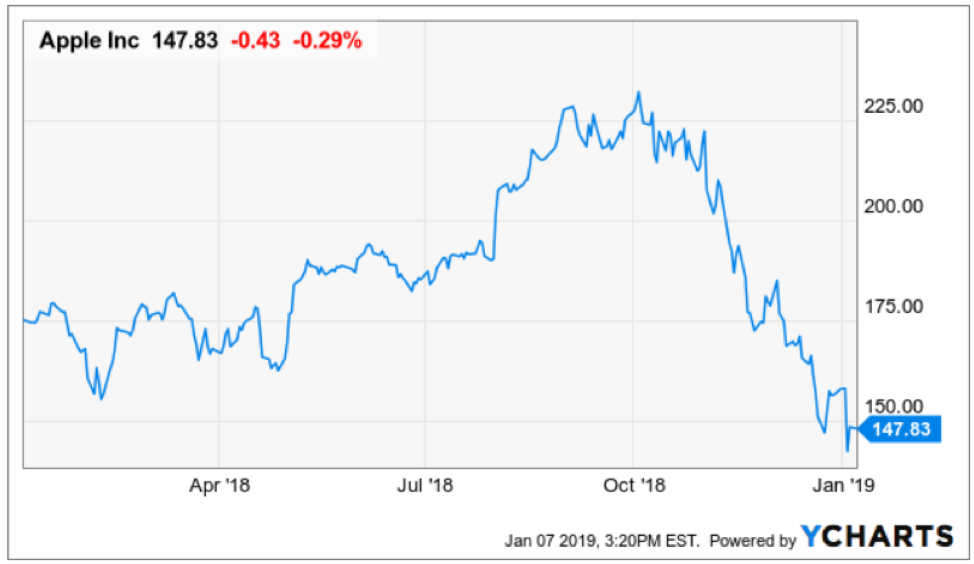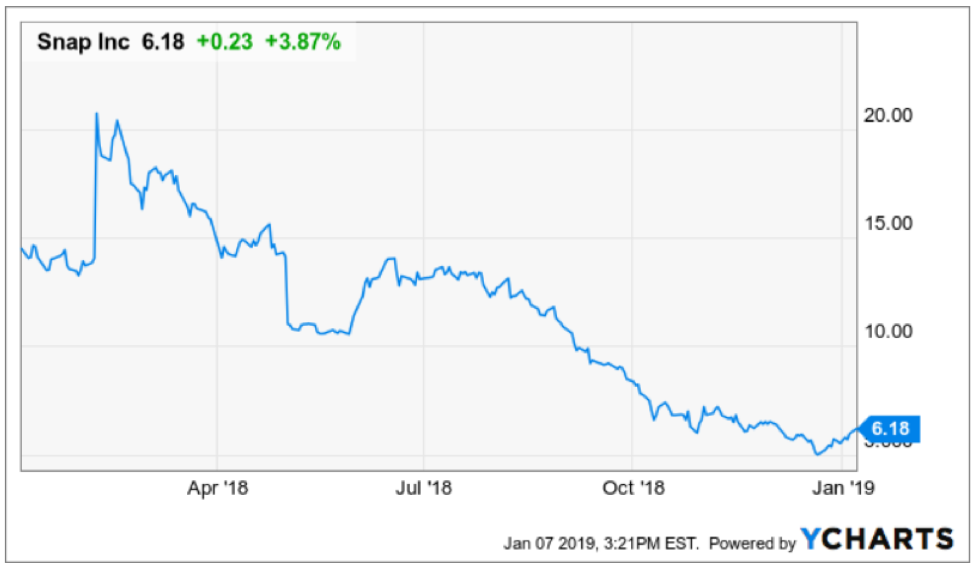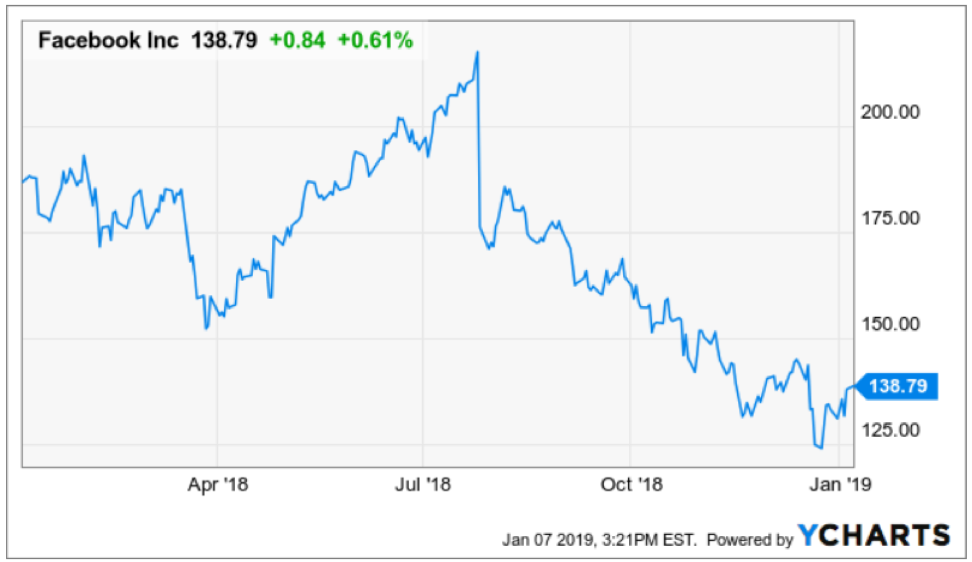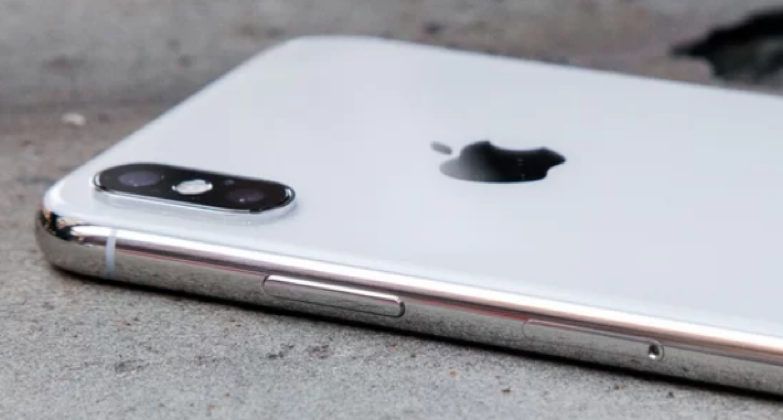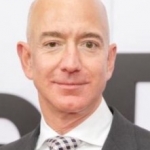Why I Sold Short Apple
Apple (AAPL) needs Jack Dorsey to save them.
That is what the steep sell-off is telling us.
Lately, Apple’s tumultuous short-term weakness is indicative of the broader mare’s nest that large-cap tech is confronting, and the unintended consequences this monstrous profit-making industry causes.
These powerful tech companies have sucked out the marrow of the innovative bones that the American economy represents, applying this know-how to pile up ceaseless profits to the detriment of the incubational start-ups that used to be part and parcel of the DNA of Silicon Valley.
In the last few years, the number of unicorns has been drying up rapidly on a relative basis to decades of the ’90s and the early 2000s – this is not a startling coincidence.
The mighty FANGs were once fledging start-ups themselves but have become entrenched enough to the point they transcend every swath of culture, society, and digital wallet now.
Becoming too big to boss around has its competitive advantages, namely harnessing the hoards of data to destroy any competition that has any iota of chance of uprooting their current business model.
And if these large tech companies can “borrow” the innovation that these smaller firms cultivate, they wield the necessary resources to undercut or just decapitate the burgeoning competition.
The net effect is that innovation has been crushed and the big tech companies are milking their profits for what its worth.
Fair?
Not at all.
But tech has never been a fair game and going to a gun fight with a knife is why militaries incessantly focus on technology to accrue a level of firepower head and shoulders above their peers.
The career of Co-Founder of Jet.com, an e-commerce platform bought by Walmart for $3.3 billion in 2016, perfectly illustrates my point.
Marc Lore was born from the mold of leaders such as Amazon (AMZN) founder Jeff Bezos, leveraging the wonders and functionality of the e-commerce platform to construct a thriving business empire.
Quidsi, an e-commerce company, was founded by Marc Lore on the back of Lore maxing out personal credit cards to rent trucks to head to wholesale stores up and down the East coast to buy diapers, wipes, and formula in large quantities.
Under the umbrella of Quidsi, diapers.com and soap.com were successful e-commerce businesses and a segment that Amazon hadn’t cracked yet.
CEO of Amazon Jeff Bezos identified Lore as a mild threat to his low-end pricing, high-volume business empire.
Yes, this was a market grab, but to avoid a looming and an escalating price war, Amazon bought Quidsi for $500 million and $45 million of debt leaving Lore with millions after repaying earlier investors but effectively neutering Lore and putting him out to pasture.
The best way to ensure there is not another Jeff Bezos is for Jeff Bezos to buy out the upcoming Jeff Bezos before he can get close enough to go for the kill.
While both Bezos and Lore extolled the acquisition with pleasantries, Lore later described it as a glass half empty scenario akin to a mourning.
Getting a golden parachute-like payment for innovation is the best-case scenario for these up and coming stars of tech.
Others aren’t as lucky.
The castle that Bezos built and this type of reaction to stunting competition cannot be quantified and has a net negative effect on the overall level of innovation in the tech sector.
Then there is the worst-case scenario for tech companies such as Snapchat (SNAP). They have been courted numerous times by Facebook (FB) and offered sweetened deals that most people would salivate over.
Each rebuff followed a further Facebook retrenchment onto Snapchat’s territory hoping that they would gradually tap out from this vicious headlock.
In return, Snapchat has had the Turkish carpet pulled out from underneath them and most of their in-house innovation has been borrowed by Facebook’s subsidiary social media platform Instagram.
During this time span, Snapchat’s share price has nosedived and the defiant Snapchat management has lost the momentum and bravado that was emblematic to their business model.
Innovation has also been strangled in Venice, California as declining usership has been partly due to a lack of fresh features and an emphasis on profit creation instead of innovation that led to a botched redesign and sacking of 100 engineers.
Then there is that one's company, two's a crowd and three's a party and Snapchat’s growth model trailed Facebook and Twitter who took advantage of the era of zero regulation to build usership and brand awareness.
Snapchat was late to the feast and has suffered because of it.
The climate and mood for social media have significantly soured in the past six months and have tainted this whole niche sector with one toxic stroke with a brushstroke that has encapsulated any company within two degrees of this sector.
So where do the innovative problems start with Apple?
Right at the top with CEO Tim Cook.
Apple is known for brilliantly rewriting history and not fine-tuning it.
This is why I have preached the emphatic value of erratic but visionary leaders such as Steve Jobs and Elon Musk.
They take big risks and do not apologize for their smoking weed on podcasts and laugh about it.
Investors put up with these shenanigans because these leaders understand the scarcity value of themselves.
They don’t play it safe even if profits are the easiest option.
To save Apple, Apple would need to hire Square and Twitter CEO Jack Dorsey to innovate out of this mess.
The stock would double from here because Dorsey would bring back the innovative juices that once permeated through the corridors in Cupertino through Job’s genius ideas.
Under Cook’s tutelage, Apple has made boatloads of cash, but they were going to do that anyway because of Steve Job’s creations.
However, Cook has presided over China rapidly encroaching on its revenue source and is over-reliant on iPhone revenue.
They had years to develop something new but now China is beating Apple at its own game.
Not only has the smartphone market sullied, but so has the relative innovation that once saw every iPhone iteration vastly different from the prior generation.
The petering out of innovative smartphone features has gifted time to the Chinese to figure out how to snatch iPhone loyalists in China with vastly improved devices but at a way lower price point.
The erosion of Samsung’s market share in China should have been a canary in the coal mine and China is in the midst of replicating this same phenomenon in India too.
And I would argue that this would have never happened if Steve Jobs was still alive.
Jobs would have reinvented the world two times over by now with a product that doesn’t exist yet because that is what Jobs does.
As it is, Cook, a great operation officer, is a liability and probably should still be an operations manager.
Cook blared the sirens in early January with a public interview saying that revenue would drop by $9 billion.
This was the first profit warning in 16 years and won’t be the last if Cook retains his position.
Cook has steered the mystical Apple brand careening into the complex dungeon of communist China and was late to react.
Jobs would act first and others would have to react to his decisions, a staple of innovation.
Sailing Apple’s ship into the eye of the China storm stuck out like a sore thumb once Trump took over.
Adding insult to injury, consumers are opting for cheaper Android-based phones that function the same as iPhones.
The 10% of quality that Apple adds to smartphones isn’t enough to persuade the millions of potential customers to pay $1000 for an iPhone when they can get the same job done with a $300 Android version.
Cook badly miscalculated that Apple would be able to leverage its luxury brand to convince prospective buyers that iPhones would be a daily fixture and can’t-miss product.
Even though it was in 2010, it isn’t now.
The type of price points Apple is offering for new iPhone iterations means that this version of the iPhone should be at least 35% or 40% better than the previous version giving the impetus to customers to trade-up.
Sadly, it’s not and Cook was badly caught out.
Therefore, it is confusing that Apple didn’t apply more of its mountain of capital and luxurious brand status to cobble together a game-changing product.
Cook could have put his stamp on the Apple brand and might not have the chance now.
Cook being an “operations guy” has gone to the well too many times and the narrative and direction of Apple is a big question mark going forward.
This is the exact time needed for some long-term vision.
What does this all mean?
The shares’ horrific sell-off means that it is in line for some breathing room from the relentless downward price action.
However, unless the geopolitical tornados can subside, Apple debuts a Steve Jobs-esque bombshell of a product, or Square (SQ) CEO Jack Dorsey takes over the reins in Cupertino, the share price has limited upside in the short-term.
Apple will not have the momentous and breathtaking gap ups until something is fundamentally changed in the house that Steve Jobs built and that is what the tea leaves are telling us.
This has led me to execute a deep-in-the money put spread to take advantage of this limited upside.
Apple is a great long-term hold, but even Cook is threatening this premise.
As Cook is stewing in his office pondering his uncertain future, he forgets what it was that got Apple to the top of the tech ladder – innovation and lots of it.
The Mad Hedge Technology Letter ranks innovation as the most important input and x-factor a tech company can possess.
Steve Jobs understood that, yet, failed to pass on this hard-learned but important lesson to his protégé.
If Apple stays on the same track, they risk being the next Nokia (NOK) or Blackberry (BB).

